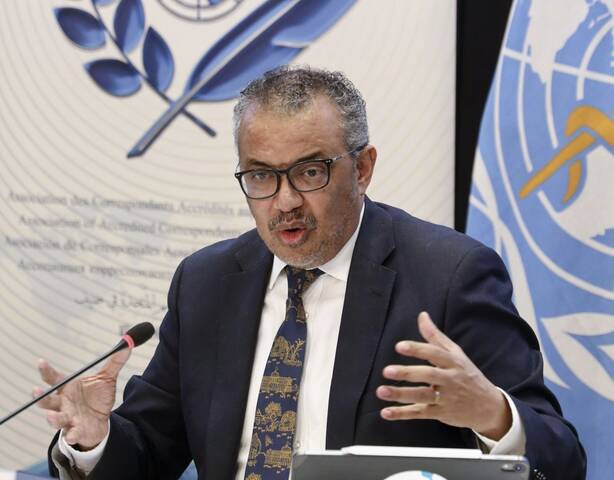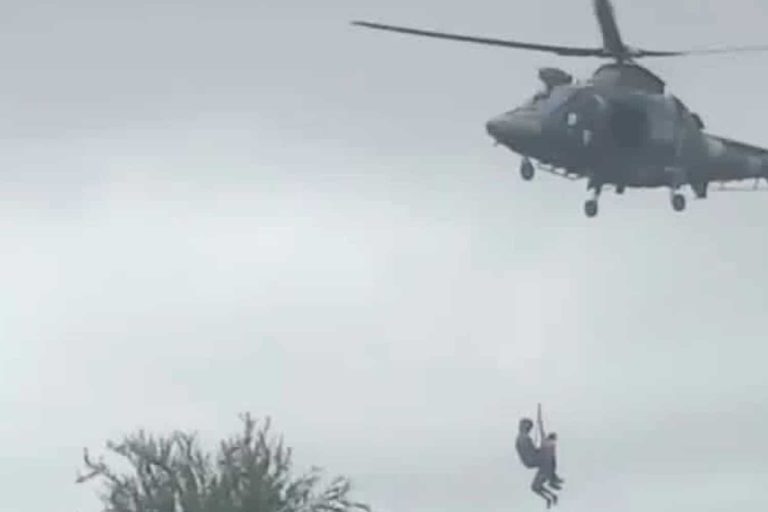
Gaza is facing a “catastrophic” public health crisis that could affect its population for generations, the head of the World Health Organisation (WHO) has warned, urging immediate and unrestricted humanitarian access to the war-torn enclave.
Dr Tedros Adhanom Ghebreyesus, WHO Director-General, described conditions in Gaza as “beyond words,” citing a deadly mix of famine, widespread injury, disease, and a collapsed healthcare system.
“Combine famine with overwhelming mental health trauma, and you have a crisis for generations to come,” Dr Tedros said.
Dr Tedros’ comments come as a fragile ceasefire between Israel and Hamas, brokered by the United States, enters its second week. While Israel has since allowed more aid into Gaza, including medical supplies, the WHO chief says deliveries remain well below the level needed to rebuild the territory’s devastated health infrastructure.
He welcomed the truce but said the expected surge in humanitarian relief “hasn’t materialised.”
Gaza’s health infrastructure has nearly collapsed, with thousands injured and sick unable to access care. Dr Tedros revealed that 700 patients have died waiting for medical evacuation flights, which have been suspended for the past two weeks due to religious holidays in Israel.
He called for the urgent resumption and scaling up of these flights, saying thousands are still waiting for life-saving treatment outside Gaza.
In addition, supplies meant to restore Gaza’s health facilities have reportedly been confiscated at Israeli crossings. Dr Tedros said some essential materials like tent supports for field hospitals have been blocked on the grounds they could be “dual-use” items with potential military applications.
“If you can’t bring in tent poles, how do you set up a field hospital?” he asked.
The WHO and other aid agencies have repeatedly called for full access to all border crossings under Israeli control to facilitate deliveries. Currently, only two crossings Kerem Shalom and Kissufim are open, but aid flows are far short of what’s needed.
Dr Tedros said 600 aid trucks per day are required, yet only 200–300 are entering, far below the target. He stressed that aid must be “de-linked” from political negotiations, adding: “Aid should not be weaponised.”
He also criticised conditions being placed on aid delivery, including those related to the return of deceased Israeli hostages. While 20 live hostages were released in a recent exchange, only 15 of 28 bodies have been recovered by Hamas so far. Israel has temporarily halted aid in response to security incidents and ongoing disputes over the return of remains.
“There should be no conditions,” Dr Tedros said. “Especially after the hostages were released, further restrictions are unjustified.”
Since the US helped broker the ceasefire, Dr Tedros said Washington bears responsibility for ensuring both sides uphold the agreement, particularly when it comes to humanitarian access.
The UN’s World Food Programme said more than 6,700 tonnes of food have entered Gaza since October 10, but that still falls short of the 2,000 tonnes per day needed to address the food crisis. Aid organizations say they are beginning to “turn the tide” on famine, but emphasize that far more is needed.
A UN-backed assessment in July declared famine was present in Gaza, though Israel disputes those findings, insisting no starvation has occurred.
The cost to rebuild Gaza has been estimated at $70 billion, with around 10% needed for healthcare. Dr Tedros said mental health needs alone could overwhelm future generations.
“This is a crisis that will echo through time,” he warned. “Many celebrated the ceasefire in the streets. Now, some of those same people are dead. That is the cruelty of a broken peace.”
Erizia Rubyjeana



